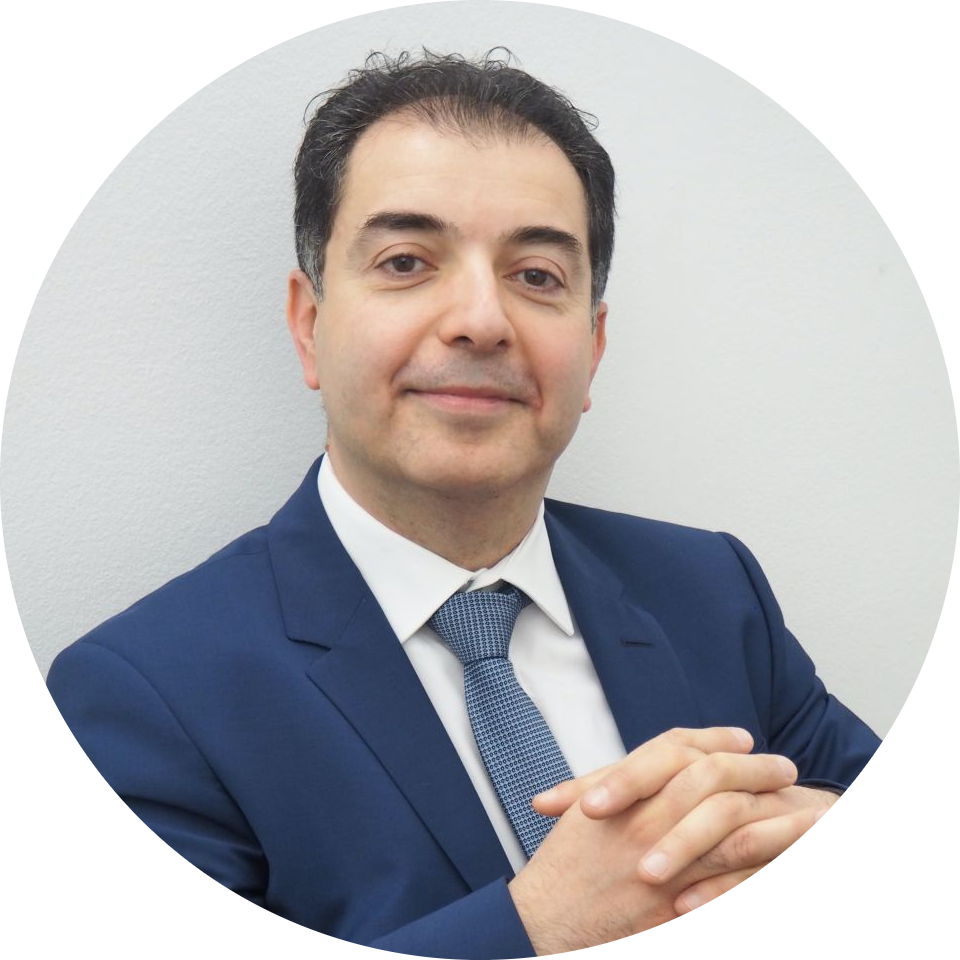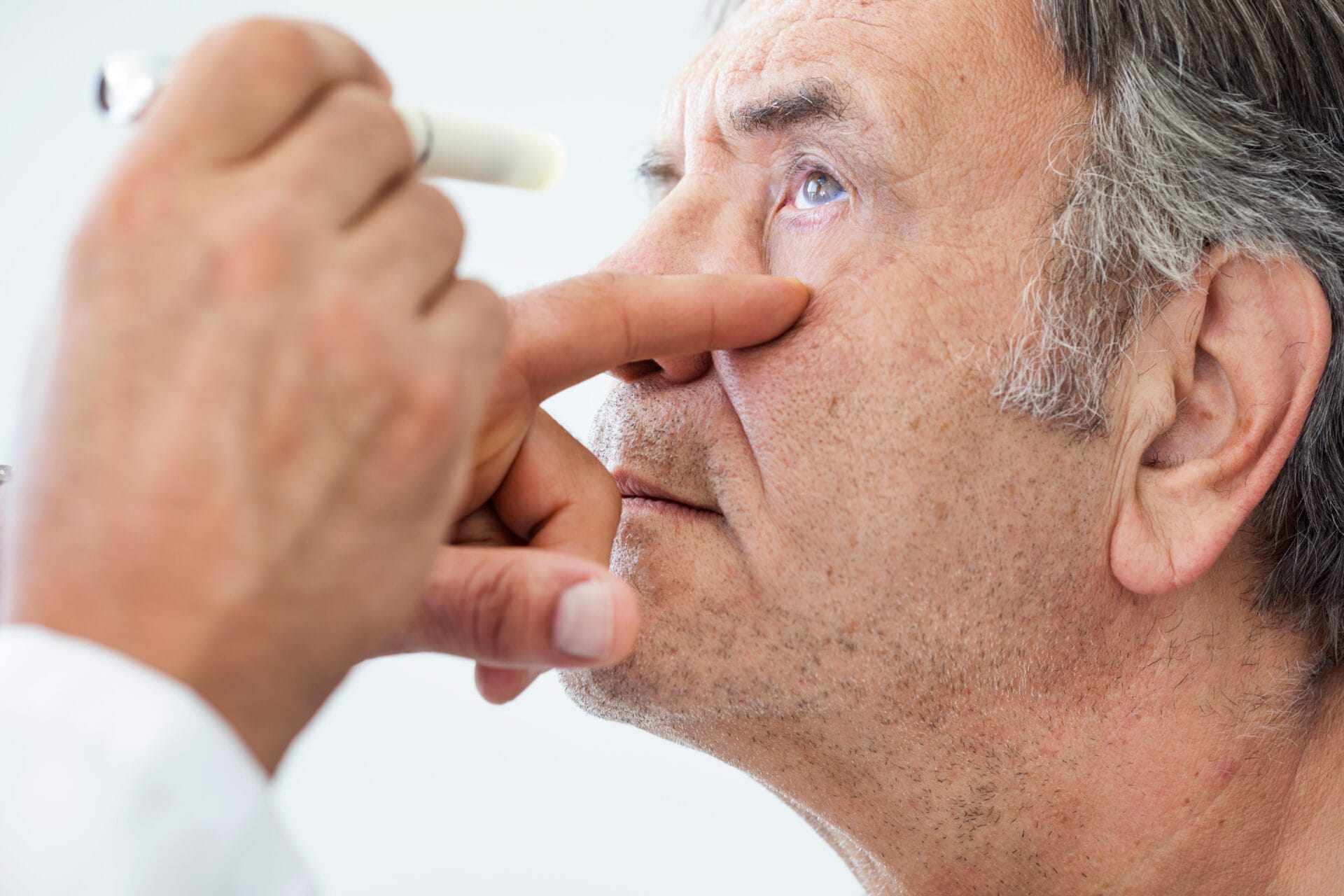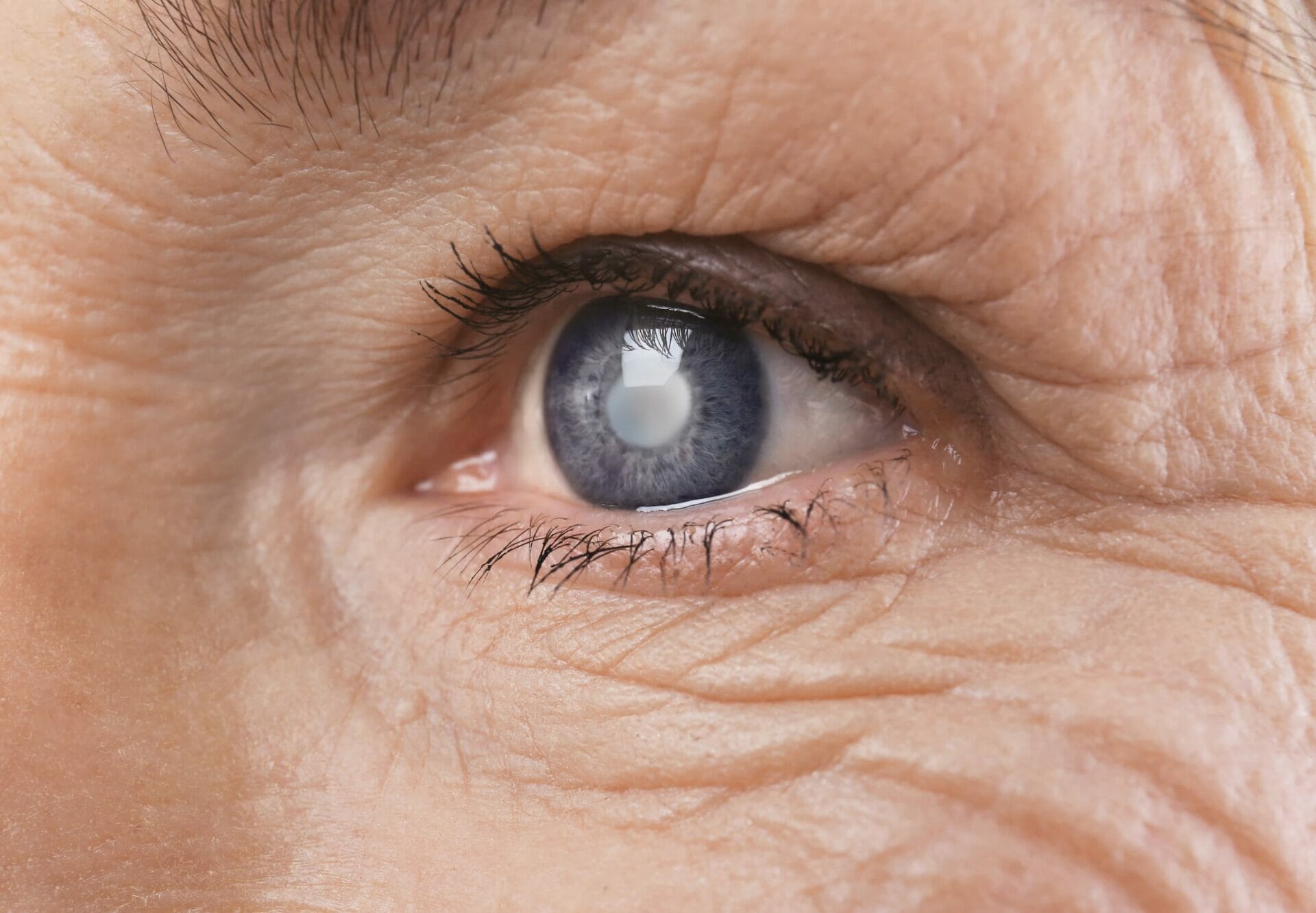For FAQs regarding Coronavirus please click here
Everything you need to know about cataracts
FIND OUT MORE ABOUT CATARACTS AND WHAT YOU ARE DEALING WITH
I am fee-assured by private medical insurance providers
I AM PROUD TO BE RECOGNISED BY THE FOLLOWING INSURERS
Affiliations and memberships
I AM PROUD TO BE ASSOCIATED WITH THE FOLLOWING ORGANISATIONS
How to get cataract surgery in London
FOCUS ON WHAT MATTERS MOST IN 3 EASY STEPS

STEP 1: CONTACT US
To get the answers to all your questions, give us a call or click the button below to book a free video appointment with an optometrist or our Consultant Ophthalmologist, Samer Hamada.

STEP 2: LET’S MEET
Visit our clinic in London’s Harley Street district and we’ll conduct a thorough examination and consultation to get to know your eyes.

STEP 3: FOCUS ON WHAT MATTERS
Have the confidence of knowing that a caring eye care professional is managing your eye condition so you can focus on matters most.
Even more information about cataracts
VIDEO AND BLOG POSTS TO THAT FURTHER EXPLAIN AND ILLUSTRATE CATARACTS
Cloudy Vision After Cataract Surgery
Cataract surgery is necessary to restore your vision. But can it become clouded again after surgery? Learn more with Eye Clinic London.
Cataract Surgery Waiting Lists
Cataract surgery is vital, but NHS waiting times can be lengthy. Discover the short wait time for private surgery with Eye Clinic London.
Potential cataract surgery complications
Cataract surgery is generally highly successful, but complications can occur. Learn more about potential cataract surgery complications with Eye Clinic London.
Can Cataracts Be Reversed Naturally?
Cataracts occur when the lens of your eye becomes cloudy and opaque, leading to changes in your vision, such as blurring and dulled colours. These alterations can make daily tasks a challenge.
Patient Reviews
MY PATIENTS ARE MY BEST PROMOTERS

“As soon as I met Mr Hamada, I knew I was in safe hands. He is an expert in his field, and very reassuring. His work was impeccable, and I would thoroughly recommend him to anyone wanting a professional, kindly, expert service.”

“I came all the way from the US to be evaluated by Mr. Samer Hamada who provided me with a world-class experience. I was treated with technology that doesn’t exist in the United States. My vision improved significantly since the surgery. Mr. Samer Hamada is definitely a Keratoconus expert.”

“I am glad to be with Mr Hamada. I am glad to be examined by Mr Hamada who acts responsibly and professionally. I never had this experience before from a previous ophthalmologist. I am thankful to Mr Hamada for the successful diagnosis and treatment of my case.”

“What a Consultant. Dr. Hamada is a man who was born for this profession. As soon as we walked into the room you felt that you had met a man who was gentle and kind. His demeanour was of a man who knew his trade. He speaks in a way that you will understand. He explains exactly what is wrong and the way he will help fix it for you.”

“My eyes got really sore, tired and gritty feeling this year. It kept getting worse for about 6 months and every time I thought about it, I kept thinking it would eventually go away, but it just didn’t budge. So I want to say a big thank you to eye doctor Mr Samer Hamada who finally sorted me out! Apart from the eye tests I expected, he also took a really personal approach. I appreciate that he asked questions about my whole diet and lifestyle which helped him to quickly figure out why my eye surface was inflamed. I now have simple steps I can take to reduce the inflammation through diet and lifestyle changes which I’ve now been doing for 2 weeks. I also have been using the special non-preservative eye drops and gels that Mr Hamada provided. My eyes are already feeling so much better and I’m so relieved to have had help to sort this out. If you’ve been noticing your eyes getting dry – don’t wait to sort it out as it keeps getting continually worse and you can find relief very quickly with the right help.”

“Mr Hamada’s London Eye Care and his team are a delight. Nothing was too much trouble and the help, support, advice and guidance before during and after the surgery was all world class. I have worn glasses since the age of 13 years and had the onset of cataracts for the last five so it has all been very much a life changing experience to be free from glasses once more.”

“We saw Mr Hamada after our 14-year-old son was diagnosed with keratoconus by another specialist. Mr Hamada talked us through the pros and cons of the cxl epi off and epi on procedures, he answered all our many and detailed questions without rushing us and as openly and honestly as possible. We opted to go ahead with cxl epi off with Mr Hamada. Our experience with Mr Hamada and his team, from his incredibly informative and supportive Secretary Joanna, nurse Mimi and Mr Hamada himself who was incredibly reassuring and put us and our son at ease both before, during and after the procedure, and at each follow-on appointment, has been the best possible. I would go so far as to say that he and his team are by far the best medical team I have ever experienced. I recommend him highly and would be happy to speak to anyone considering an expert in this field.”

“I would not hesitate to recommend Dr Hamada and his team. From the first call to inquire about booking an appointment to booking it, I was so impressed with his wonderful secretary Joanna- she really is worth her weight in gold, her lovely manner and care made me decide to go for this clinic. Dr Hamada was a lovely man with a very kind and thorougher way about him – he put my 4-year-old daughter at ease. The appointment was lengthy but at no point were we rushed and able to ask as many questions- things were explained so well. I would have no hesitation at all to recommend anyone to use Dr Hamada and his team- I have already recommended to some other parents.”

“Mr Hamada, his assistant Joanna and his ophthalmic technicians provide a caring, efficient and high quality service. From the admin through to the surgical aftercare we were very well looked after and we had a high degree of confidence in Mr Hamada’s abilities. Our daughter’s cataracts have been corrected (under general anaesthetic) and her quality of life has improved substantially. You also feel well cared for throughout – the human touch is vital in healthcare, but not always delivered, so well done and thanks to all of the team.”

“We were referred to Dr.Hamada by one of the UK experts. The expert himself admitted that Dr.Hamada was better than him!! We were not disappointed at all. Dr. Hamada was excellent with my child. His communication skills and knowledge were exemplary. He gave us clear management plan and would not hesitate to recommend him.”

“Dr Hamada is an excellent, highly competent doctor with a very kind and sympathetic manner. His reputation for successfully treating dry eye patients seems unparalleled. His team are all extremely friendly and helpful, especially Dr Hamada’s PA Joanna, making the overall experience better than anywhere else I’ve been!”

“Appointment setting and follow-up were very efficient and well managed. Mr Hamada was kind, reassuring, knowledgeable and had a very warm manner with my young son, making him instantly feel at ease. I feel that we can trust him and that he will finally be able to solve my son’s long-term eye problems that have stumped other eye doctors.”

“A real care provider – true in letter and spirit. After having seen few other consultants we were lucky to see Mr. Hamada. He treated my mother’s eyes and the prolonged inflammation finally went away. My mother went on to receive a corneal graft. Mr. Hamada and his clinic are simply wonderful. Their response is immediate every time even if it’s the weekend. Mr. Hamada puts a lot of personal attention answering every question very patiently and alleviating any fears. His manner is so kind that puts his patients completely at ease. This caring trait continues in the rest of his staff especially his assistant Joanna. I really can’t thank them enough. I thoroughly recommend anyone with eye problems to go to Mr. Hamada. You couldn’t be in better hands. He has treated my mother who is a long sufferer of eye problems. I am grateful always to Mr. Hamada and Joanna for all the support they have provided throughout.”
We have replaced some of the images of real patients who provided these testimonials to protect their privacy.
Helpful links to more information about cataract surgery
COMPREHENSIVE INFORMATION FROM CATARACT AUTHORITIES

About the expert
Mr Hamada | Consultant Ophthalmologist and Corneal Surgeon
MD, MSc, DO (hons), FRCSEd, FRCOphth I am Samer, founder and consultant ophthalmic surgeon with over 20 years’ experience in ophthalmology. I am a world-renowned specialist in cornea, cataract and refractive surgery. I’m not only a leading surgeon but also the only dual fellowship trained in corneal diseases in children from reputable institutions in the UK. At Eye Clinic London I work closely with other consultant ophthalmologists, optometrists and orthoptists to achieve the best outcomes for our patients. Our main aim is to make sure our patients get the safest and best treatments available to them. We put your safety before anything else so you can rest assured that if you choose us you will be in the best and safest hands.


 The lens is formed of water and protein and is typically clear as a result of protein arrangements. However, ageing and other various reasons may provoke some of the protein to ‘clump together’, making clear natural lens cloudy, which, over time, may develop and grow, causing vision impairment. In addition, lenses gradually discolour with age, acquiring a brown tinge that can affect colour vision and make reading more difficult.
The lens is formed of water and protein and is typically clear as a result of protein arrangements. However, ageing and other various reasons may provoke some of the protein to ‘clump together’, making clear natural lens cloudy, which, over time, may develop and grow, causing vision impairment. In addition, lenses gradually discolour with age, acquiring a brown tinge that can affect colour vision and make reading more difficult. however, genetic mutation is likely to be the most common cause. It is very important for doctors to check infants for cataracts first at birth, then at 6-8 week routine check, as although they are uncommon, early diagnosis and intervention are crucial. This is because impaired vision can drastically affect the child’s development and early learning as the child discovers the world through the eyes.
however, genetic mutation is likely to be the most common cause. It is very important for doctors to check infants for cataracts first at birth, then at 6-8 week routine check, as although they are uncommon, early diagnosis and intervention are crucial. This is because impaired vision can drastically affect the child’s development and early learning as the child discovers the world through the eyes. Your eye’s clouded lens is replaced with a clear artificial lens. The surgery usually takes 10-20 minutes and you will be discharged on the same day.
Your eye’s clouded lens is replaced with a clear artificial lens. The surgery usually takes 10-20 minutes and you will be discharged on the same day.


















